Most people focus on their teeth, but your gums are just as important—maybe even more.
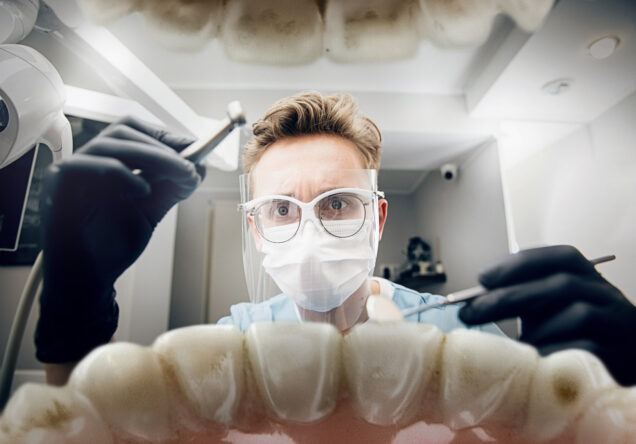
Plus, according to dentists, there are a few surprisingly common habits that can seriously mess with your gum health. While you don’t need to obsess over it or start shelling out cash on special products aimed specifically at your gums, you can encourage good oral health in general by not doing these things.
1. Skipping flossing because brushing feels like enough
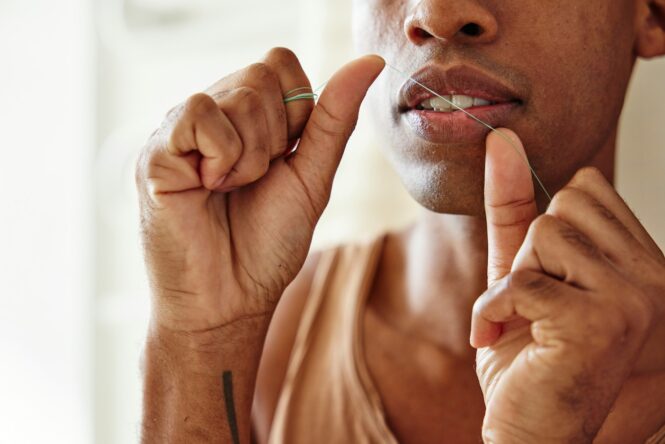
Lots of people assume brushing twice a day is all it takes, but flossing isn’t optional. Food particles and plaque build up between teeth where brushes can’t reach, and when that gunk sits too long, it irritates your gums and leads to inflammation.
Dentists say flossing isn’t just for getting stuff out of your teeth—it’s how you prevent gum disease. If you skip it, you’re leaving behind exactly what your gums are trying to fight off. Once bleeding and tenderness kick in, you’re already on the defensive.
2. Brushing too aggressively thinking it’ll get things cleaner
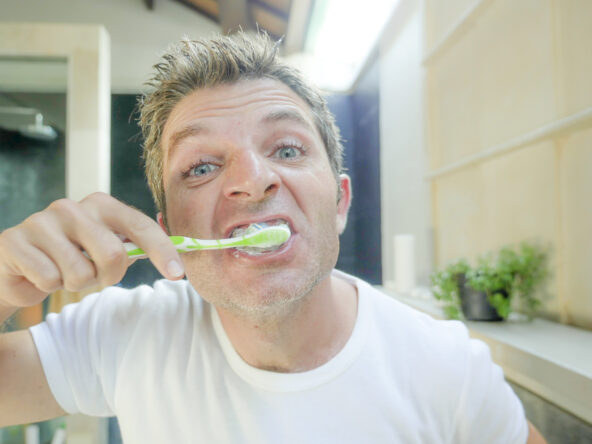
Scrubbing hard with a firm toothbrush might feel satisfying, but it’s doing more harm than good. As time goes on, harsh brushing can wear down your enamel and literally push your gums back, exposing roots and causing sensitivity. Most dentists recommend a soft-bristled brush and gentle, circular motions. You’re cleaning, not sanding wood. Gentler brushing is more effective long-term because it protects your gums while still removing plaque.
3. Ignoring bleeding gums instead of taking it seriously
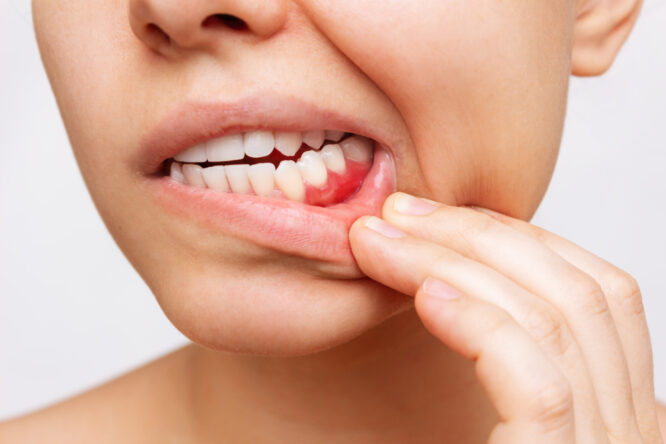
If your gums bleed during brushing or flossing, it’s not just a “one-off.” It’s your body trying to tell you something. Even mild bleeding is a red flag that your gums are inflamed, often due to plaque buildup or early-stage gum disease. Many people brush it off or avoid flossing the area, but dentists say that makes it worse. Bleeding gums should prompt you to pay more attention, not less. Catching the issue early can help you avoid more serious problems down the line.
4. Thinking mouthwash can replace flossing or brushing
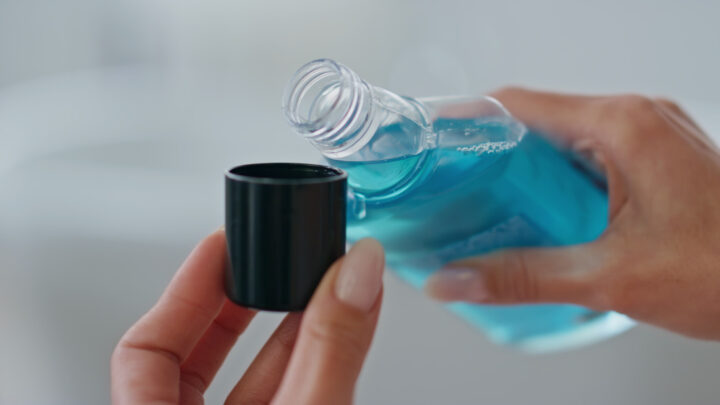
Yes, mouthwash is great for freshening your breath and rinsing away bacteria, but it’s not a substitute for the physical removal of plaque. You can’t swish your way out of gum problems if you’re skipping the real essentials. Dentists recommend using mouthwash as a bonus step, not your entire routine. It works best when paired with brushing and flossing, not as a shortcut when you’re too tired to do both.
5. Smoking or vaping and pretending it’s not affecting your gums

Even if you don’t notice obvious damage right away, nicotine and other chemicals in cigarettes and vapes significantly reduce blood flow to your gums. This weakens your body’s ability to heal and fight off infection. One of the worst parts? Smoking can mask gum disease by reducing bleeding, which makes it harder to spot until it’s advanced. Dentists often say gums look deceptively “healthy” in smokers—until they’re not.
6. Putting off dental cleanings because nothing hurts
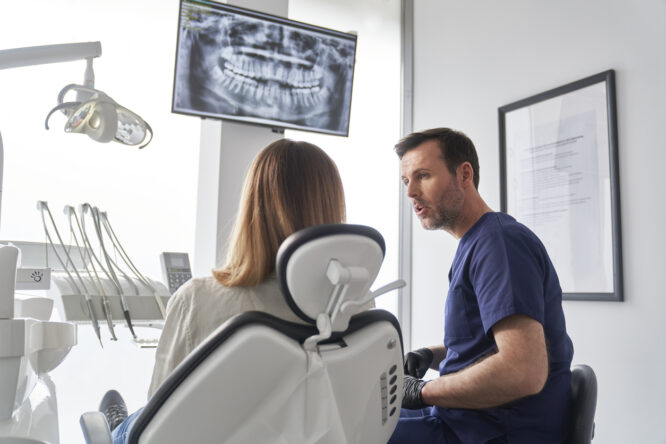
If you wait until your gums are sore to book a cleaning, you’re already behind. Professional cleanings help remove hardened plaque (tartar) that can’t be brushed away, and this is key for preventing gum disease. Gum issues often creep in silently, without pain. By the time you feel something’s off, there may already be recession or deep pockets. Dentists recommend cleanings every six months, even if everything feels fine.
7. Not brushing along the gumline properly

When you brush your teeth, it’s easy to focus on the surfaces, but if you’re not angling your brush slightly toward the gumline, you’re missing where most of the bacteria collect. Dentists say brushing just the teeth while skipping the gumline is like cleaning a room but ignoring the corners. That area is the first to get irritated, so targeting it gently helps stop inflammation before it starts.
8. Using old or frayed toothbrushes for too long
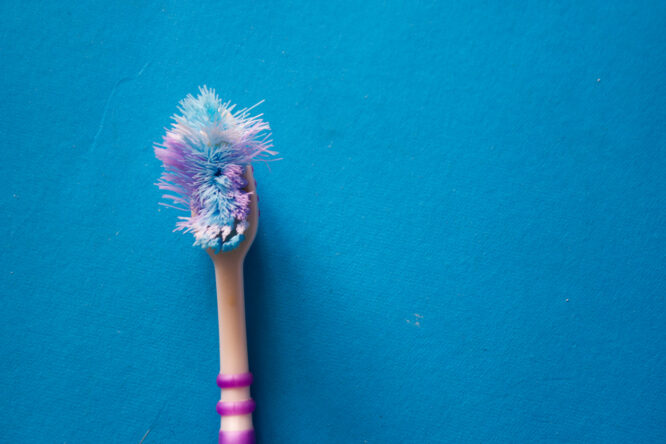
A toothbrush that’s past its prime won’t clean effectively, and worse, the worn-down bristles can actually irritate your gums. If the bristles are splayed out or flattened, it’s time to toss it. Dentists recommend switching out your toothbrush (or brush head, if electric) every 3 months. It’s a simple fix that keeps your brushing gentle, effective, and safe for your gums.
9. Only brushing once a day and assuming it’s enough
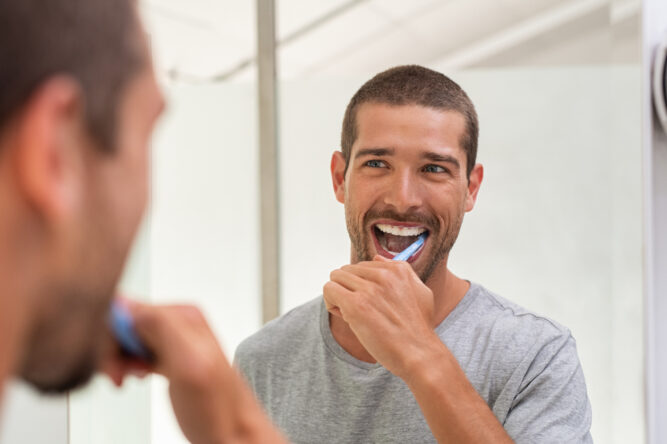
It might seem harmless to brush just once, especially if you do it really thoroughly, but bacteria don’t take a break between cleans. Plaque builds up quickly, especially overnight, and leaving it there gives it time to harden into tartar. Brushing twice a day isn’t just a dental myth—it’s a gold standard. Regular brushing reduces bacterial overload and gives your gums less to fight against, helping them stay calm and healthy.
10. Avoiding floss because your gums bleed when you do it

This one catches a lot of people. You start flossing, notice some blood, and panic—thinking you’re hurting yourself. But ironically, the bleeding usually means your gums need more attention, not less. Dentists say that consistent, gentle flossing will reduce bleeding over time. If you avoid it altogether, the inflammation just gets worse. Stick with it, and your gums will strengthen and heal.
11. Not treating dry mouth as a real issue
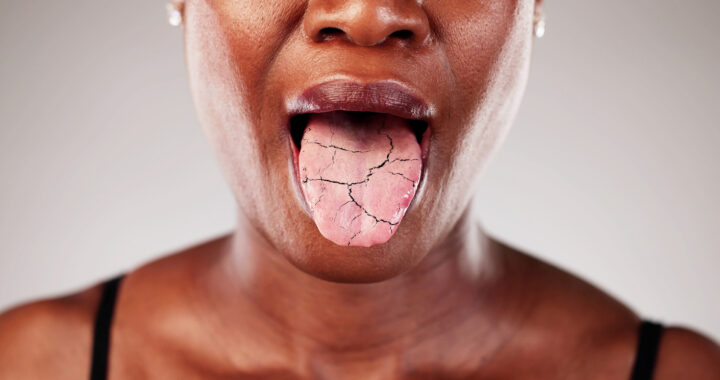
Saliva plays a major role in gum health. It helps wash away bacteria and keeps your mouth’s ecosystem balanced. If you have dry mouth due to medications, dehydration, or habits like mouth breathing, your gums are at greater risk of inflammation and infection. Dentists recommend sipping water frequently and possibly using a saliva substitute or mouth spray. If it’s persistent, bring it up at your next appointment—dry mouth isn’t just uncomfortable, it’s a gum health hazard.
12. Thinking gum disease only affects older people
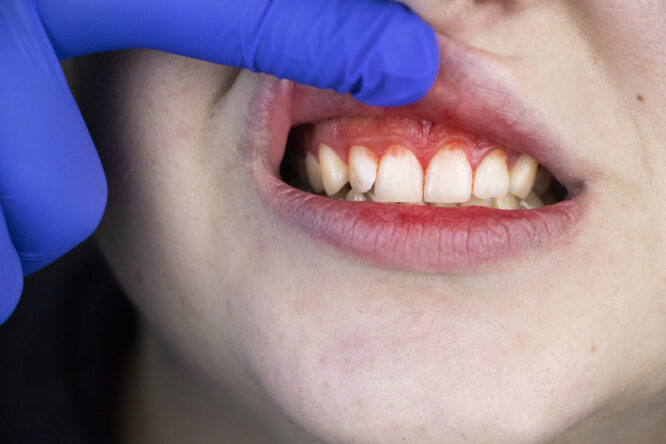
There’s a myth that gum disease is something that happens later in life, but early-stage gum problems can start in your teens or twenties, especially if you’re not consistent with oral care. Gum health issues can develop slowly and quietly, which is why dentists want you to pay attention early. Prevention doesn’t have an age limit. Catching things early saves you from more serious dental work later on—and keeps your smile healthier for life.




